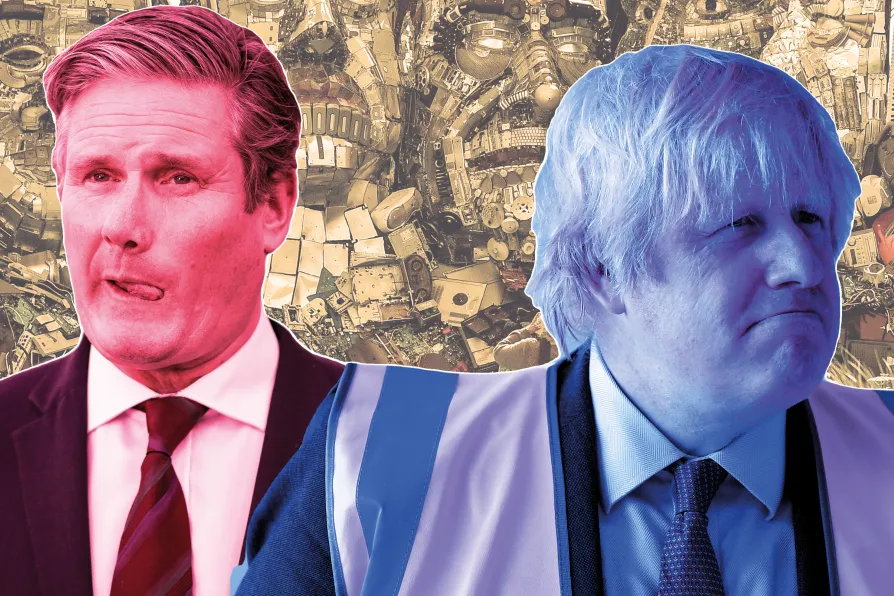Does widespread and uncontrolled use of AI change our relationship with scientific meaning? Or with each other? ask ROX MIDDLETON, LIAM SHAW and MIRIAM GAUNTLETT

 The vagaries of Britain’s unrepresentative first-past-the-post election system has induced a deluded state of mind in some people who conclude that a “progressive alliance” is the way to remove the Tories from office — it won't work
The vagaries of Britain’s unrepresentative first-past-the-post election system has induced a deluded state of mind in some people who conclude that a “progressive alliance” is the way to remove the Tories from office — it won't work
BORIS JOHNSON seems set to win the unpopularity stakes. He has managed this by his own efforts and with little help from the Right Honourable Sir Keir Starmer, leader of Her Majesty’s Loyal Opposition, whose own popularity rating has slipped even as the Prime Minister’s plummeted.
The old Cold War joke had it that the biggest political party in Britain was the party of ex-communists — a category that once included a Labour chancellor of the exchequer and today includes the odd Guardian leader writer — and even odder Times columnist.
Today the Party of Defecting Tory Voters, which by all accounts, may allow the election of a Lib Dem in place of the disgraced Tory Owen Paterson, is even more substantial.

Deep disillusionment with the Westminster cross-party consensus means rupture with the status quo is on the cards – bringing not only opportunities but also dangers, says NICK WRIGHT

From Gaza complicity to welfare cuts chaos, Starmer’s baggage accumulates, and voters will indeed find ‘somewhere else’ to go — to the Greens, nationalists, Lib Dems, Reform UK or a new, working-class left party, writes NICK WRIGHT

Reform’s rise speaks to a deep crisis in Establishment parties – but relies on appealing to social and economic grievances the left should make its own, argues NICK WRIGHT











